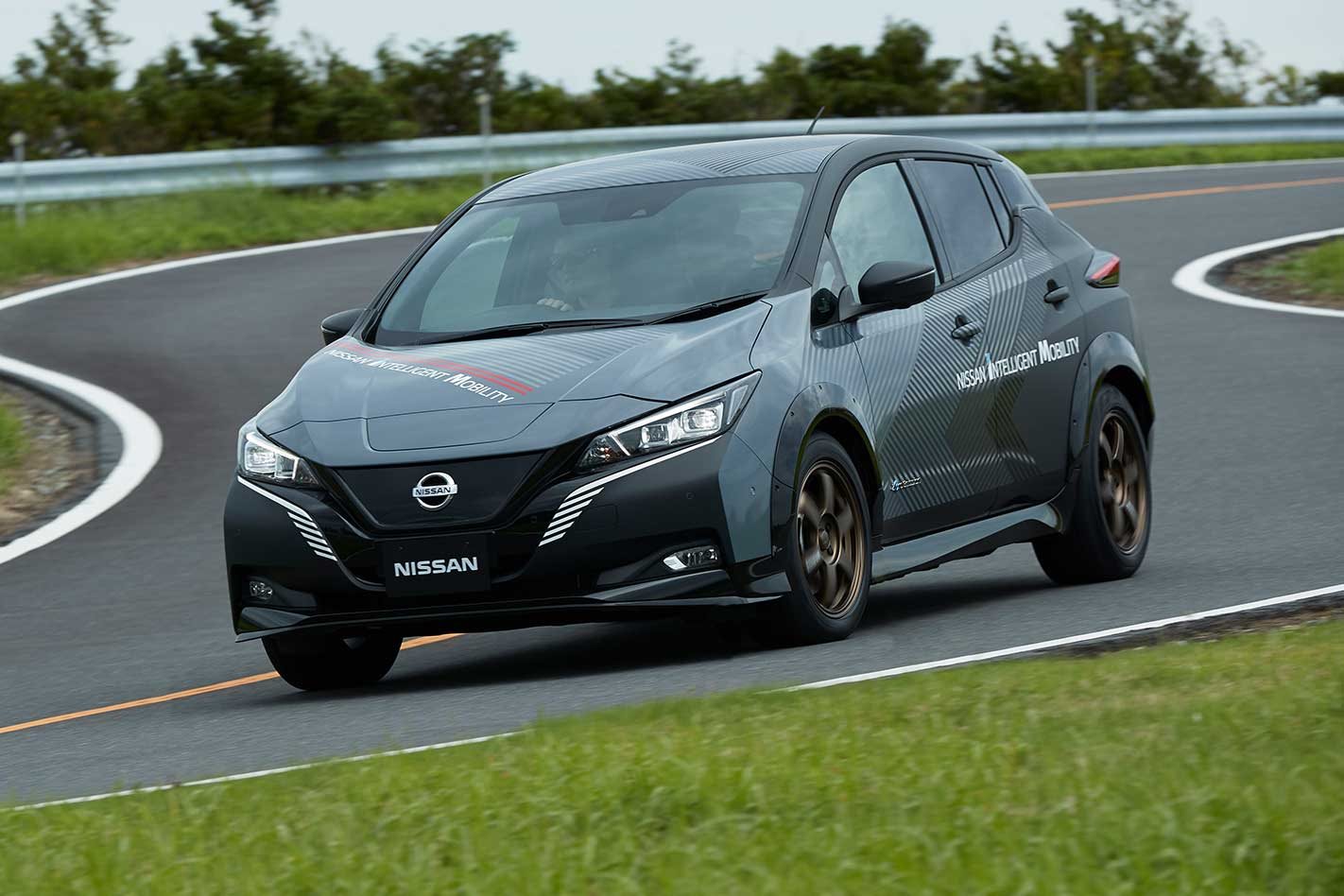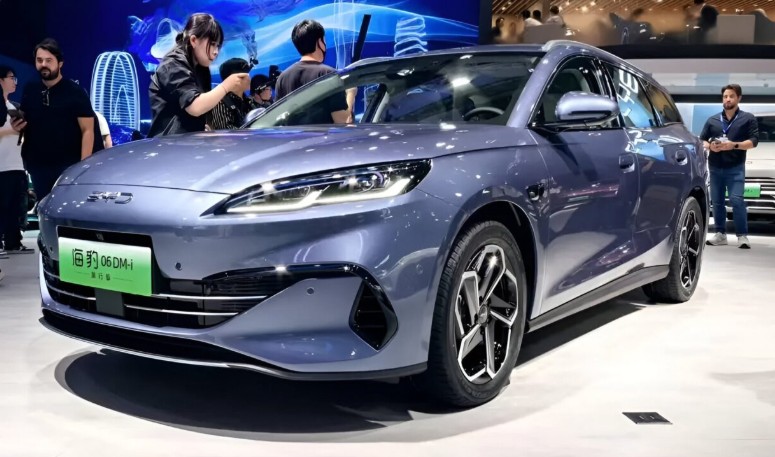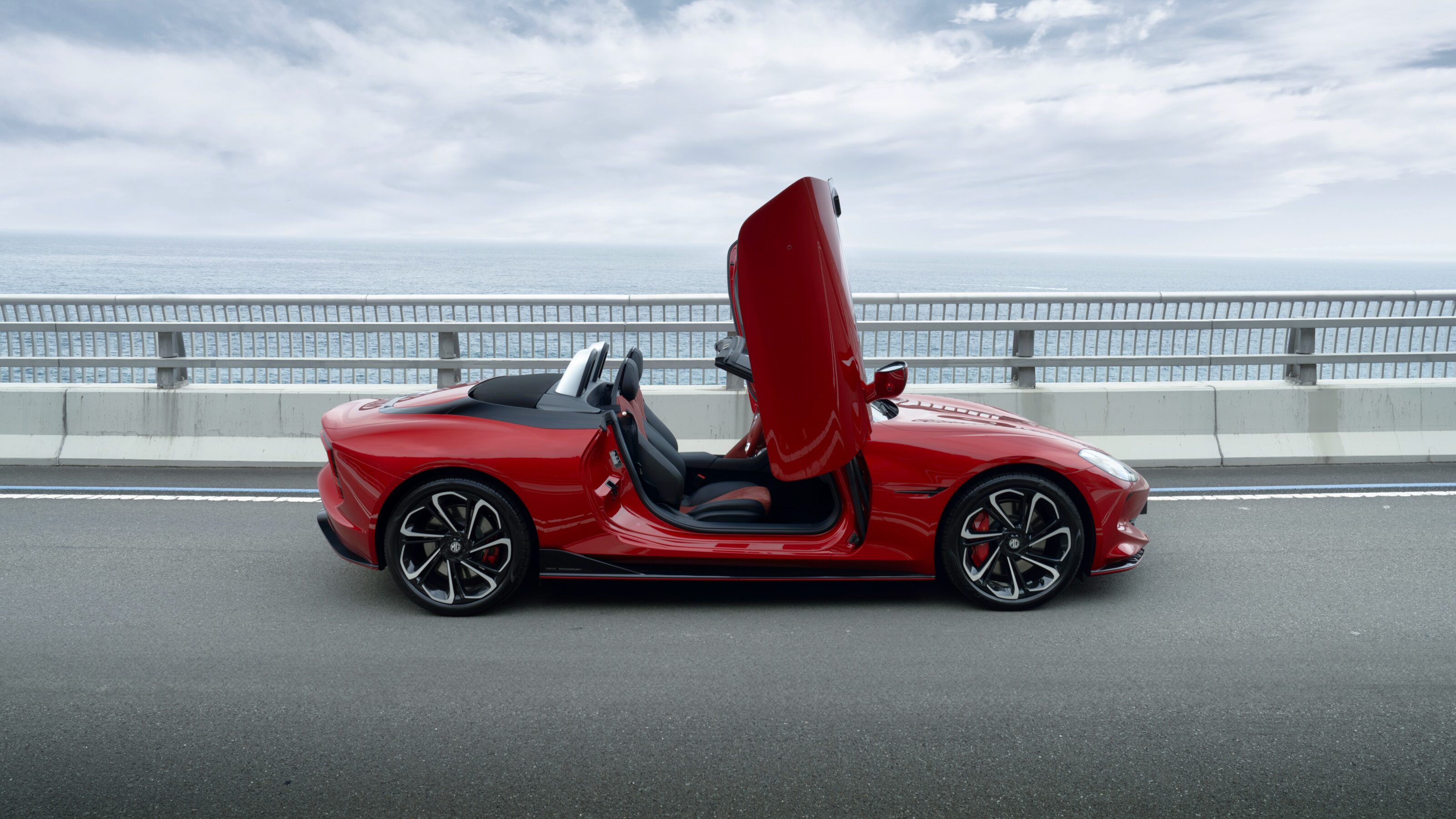Amidst Teslas and Taycans butting heads, the Nissan Leaf has been quietly offering middle-of-the-road commuter tepidness and reinforcing its status as the world’s best-selling EV.
With electric cars making their way into the performance car conversation, Nissan is stepping up its EV game with the development of a new high-power twin-motor drivetrain for its next-generation all-electric models.
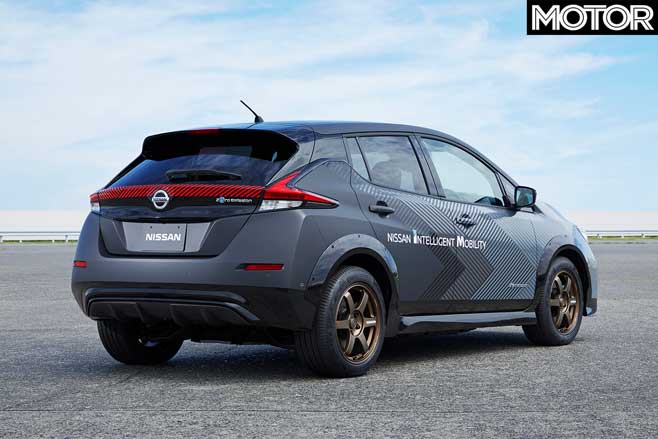
Strapped beneath an extended-range Leaf e+, the twin-motor drivetrain boasts a power output of 227kW and 680Nm of torque. More than double the standard Leaf’s 110kW/320NM claim and surpasses the 213kW/380Nm outputs of a Volkswagen Golf R.
With a motor for the front and rear axle each, the EV test car now has AWD traction and brake torque vectoring, which Nissan says is able to deliver improved ride comfort and stability during accelerating and braking.
Of course, the twin-motor system will do more than lessen the risk of an upset stomach on the school run, but Nissan doesn’t care to mention any firm performance numbers or how much range it could get out of the Leaf’s 62kWh battery pack. The standard 110kW Leaf dispenses 100km/h in 7.2sec with a 380km range.
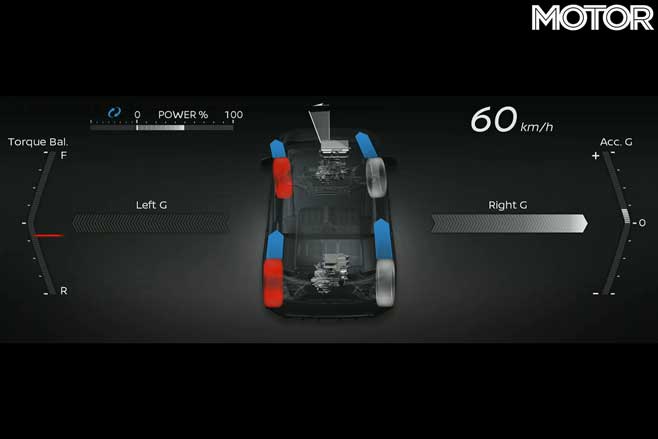
As exciting as the prospect of a new Nissan hot hatch sounds, all-electric or not, for now the EV test car is only a work-in-progress preview of what Nissan has in store for its future all-electric models.
“Soon, Nissan will launch a next-generation EV that will be a true breakthrough,” said Takao Asami, Nissan’s senior vice president for research and engineering.
“The new electric-drive four-wheel-control technology integrates Nissan’s electric propulsion and 4WD control technologies with our chassis control technology to achieve a huge leap in acceleration, cornering, braking performance, on par with the latest sports cars.”

